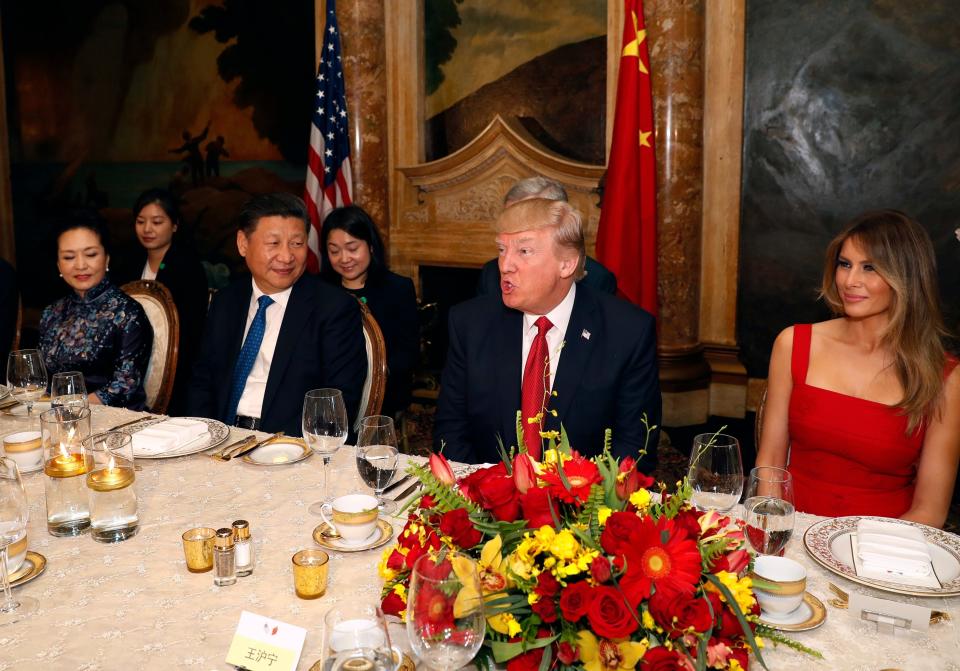Appeals court rules, unanimously, that Trump does not have immunity from prosecution
- Oops!Something went wrong.Please try again later.
- Oops!Something went wrong.Please try again later.
- Oops!Something went wrong.Please try again later.
Donald Trump does not have immunity from prosecution, a federal appeals court has ruled.
The long-awaited decision may not be the final word as the U.S. Supreme Court is expected to ultimately settle the question of presidential immunity. It is not clear if Tuesday's unanimous ruling by the three-judge D.C. Circuit Court of Appeals will restart the legal proceedings on the four felony counts Trump faces in the Jan. 6-related indictment.
In its ruling, however, the panel flatly stated that Trump, after leaving the presidency, became "citizen Trump" and "any executive immunity that may have protected him while he served as President no longer protects him against this prosecution."
Trump immediately disputed the finding by the appeals court and signaled that he would appeal.
"A President of the United States must have Full Immunity in order to properly function and do what has to be done for the good of our Country," Trump posted on his Truth Social site. "A Nation-destroying ruling like this cannot be allowed to stand."
But a legal scholar said there is really no debating the issue.
“It's a landmark decision, but in many ways an easy decision,” said Michael Waldman, CEO of the Brennan Center for Justice and a constitutional lawyer. “It makes clear that presidents are not above the law. It is bulletproof.”
Trump and his legal team have until Monday to file an appeal to the high court. On Thursday, Trump's attorneys will be at the Supreme Court to argue a different case — a ruling by Colorado's highest court keeping the former president off the 2024 ballot in that state.
Presidential race: This one poll may show why Taylor Swift's influence has MAGA world on edge in 2024 election

The question of presidential immunity does not apply to two other criminal cases against Trump — the New York charges related to a purported hush money payment in 2016 and the federal case in Florida stemming from his possession, handling and storage of classified documents after leaving the presidency.
The appeals court ruling marks a pivotal moment as the question of punishing wrongdoing by a former president is considered by the U.S. legal system for the first time in half a century.
Not since the Watergate scandal in the early 1970s has a former president faced criminal charges. In Trump's case, he faces almost 100 felony counts in two federal cases plus the New York and Georgia proceedings.
In Richard Nixon's case, a presidential pardon issued by his successor, President Gerald Ford, in September 1974 spared him from the ordeal of prosecution.
That seemingly important historical footnote was noted in the appeals court decision.
The judges wrote that "recent historical evidence suggests that former Presidents, including President Trump, have not believed themselves to be wholly immune from criminal liability for official acts during their Presidency."
Then they raised the Nixon pardon as a precedent of sorts: "President Gerald Ford issued a full pardon to former President Richard Nixon, which both former Presidents evidently believed was necessary to avoid Nixon's post-resignation indictment."
The man who negotiated the pardon, attorney Benton Becker, a former Boynton Beach resident, said in interviews before his death in 2015 that Nixon had to accept the pardon in order to avoid certain indictment.
Becker said he told Nixon during their discussions in San Clemente that accepting the pardon was an admission of guilt. Nixon agreed and issued a statement after agreeing to the presidential forgiveness offering his regret for the decisions he made in the Watergate cover-up.
Reporting by Bart Jansen of USA TODAY was used in this report.
Want to read more about presidential immunity? Here are five stories.
The presidency: If Trump had immunity as president, then why did Nixon need a pardon? What to know
The Nixon pardon: It was negotiated by a Boynton Beach lawyer. Did it leave a road map for Trump post-presidency?
Who was Benton Becker? 5 things to know about the Boynton Beach man who secretly negotiated Nixon pardon
A pardon for Trump? Legal analysts say sharp differences between Nixon, Trump belie campaign talk of a pardon
Curious history: President Nixon toured Mar-a-Lago. Then he resigned a month later.
Antonio Fins is a politics and business editor at The Palm Beach Post, part of the USA TODAY Florida Network. You can reach him at afins@pbpost.com. Help support our journalism. Subscribe today.
This article originally appeared on Palm Beach Post: Appeals court rules unanimously that Trump does not have immunity

